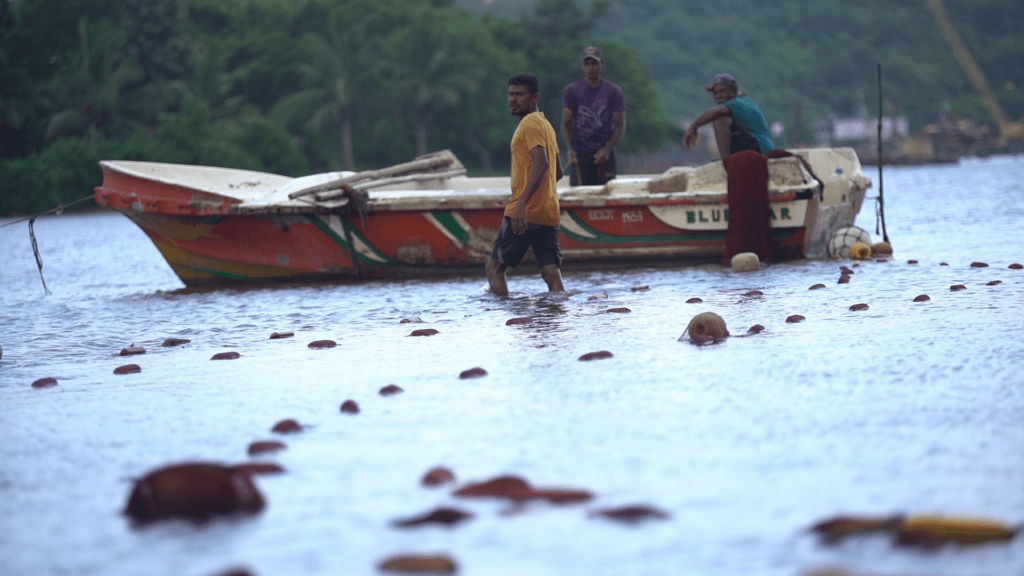Sri Lanka: Social Movements Allege Large-Scale Land Diversion from Nature Reserve for Industrial Aquaculture Project

In a controversial move that has sparked outrage among conservationists and the public alike, Sri Lanka’s government has reportedly decided to exclude 418 acres from the Vidataltivu Nature Reserve in Mannar District, Northern Province of the country, allegedly for the expansion of an industrial aquaculture project. According to civil society movements in Sri Lanka, this unprecedented action aims to facilitate the expansion of Taprobane Seafood Ltd.’s prawn farm.
A civil society report published last week reports that under the authority granted by Sub-sections 1 and 4 of Section 2 of the Fauna and Flora Protection Ordinance, the concerned ministry issued Gazette Extraordinary No. 2383/05 dated 06 May 2024, excluding a portion of land – 418 acres – from the Vidataltivu Nature Reserve.
This excluded land, the report states is meant to be allocated to Taprobane Seafood Ltd. for an aquaculture project. Taprobane Seafood Private Ltd., established in 2011, has recently forged a strategic partnership with Direct Source Seafood, a prominent American company specializing in crab and prawn imports. According to the Daily FT, Direct Source Seafood is one of the largest crab and shrimp importers in the USA, managing private-label shrimp and crab programs for major retail and food service companies. Critics protesting the land diversion in Mannar allege that these actions largely serve the interests of these private corporations. The civil society report also states that upon inquiry, officials from the Ministry of Wildlife and Forest Resources Conservation disclosed that the land from the reserve was released at the directive of high-ranking state officials
Attempts were made in the past too to divert parts of the Vidataltivu Nature Reserve for industrial use. For example, in 2017, the National Aquaculture Development Authority (NAQDA) developed a proposal for a 1,000-hectare Aquaculture Industrial Park that would allow private parties to farm marine fin fish, crabs, and exotic species of shrimp. However, due to outcry from environmentalists and opposition from the community, the plan was shelved. Therefore, this new notification issued in May 2024, is seen by many as another attempt to divert protected zones for industrial use.
The Vidataltivu area, encompassing diverse ecosystems like wetlands, mangroves, and seagrass beds, was designated as a conservation area following extensive studies and recommendations by environmental experts and international bodies. This decision aimed to safeguard the region’s rich biodiversity, which includes critically endangered species such as dugongs and various migratory birds.
However, the recent exclusion of land from this reserve has raised serious ethical and legal concerns. Critics argue that the government’s actions undermine the principles of environmental conservation and violate constitutional provisions mandating protection and preservation of natural resources for public benefit. Moreover, the report alleges that the exclusion was carried out without the required environmental impact assessments and contrary to the approved management plan for the reserve, highlighting its illegality. On the 27th of June, the Supreme Court of Srilanka suspended this notification through an interim order.
However, the involvement of high-ranking state officials has fueled allegations of corruption and undue influence. If proven true, these allegations could tarnish not only the government’s reputation but also underscore the risks posed by unchecked corporate influence on environmental policy.
Taprobane Seafood Ltd.’s prawn farming operations, already under scrutiny for environmental violations such as untreated wastewater discharge, stand accused of further endangering local ecosystems and livelihoods. Local fishing communities, whose survival depends on the ecological health of the area, face potential economic devastation due to the degradation of their fishing grounds.
As the controversy unfolds, it remains to be seen whether legal challenges and public outcry will compel the government to reconsider its decision and uphold its constitutional duty to safeguard the environment. For more details, visit the People’s Alliance for Right to Land website. The Movement for Land and Agricultural Reform (MONLAR) is a member of this network and among the many movements opposing the gazette notification.
